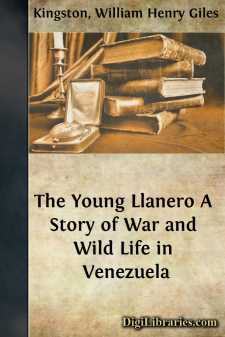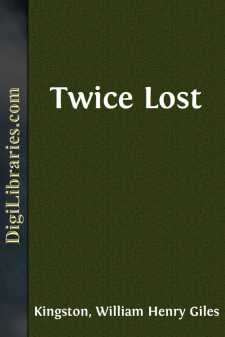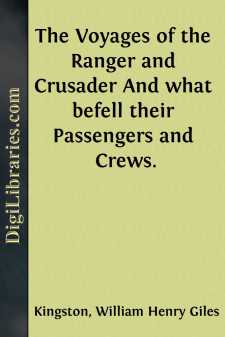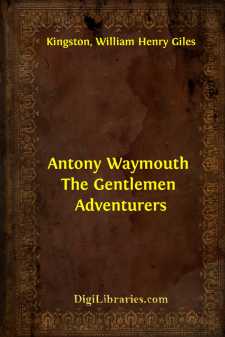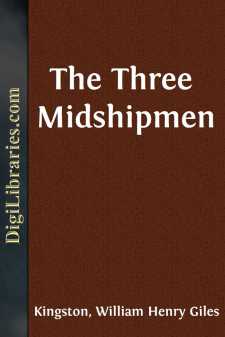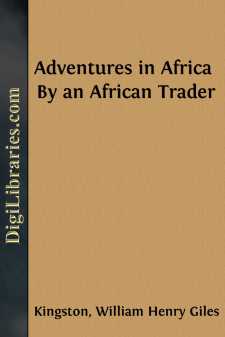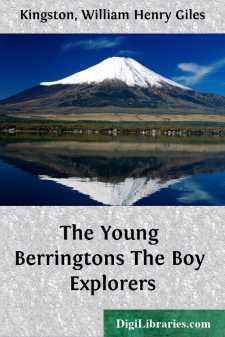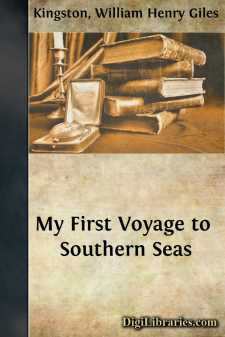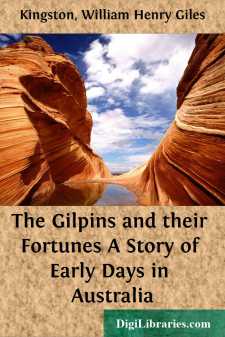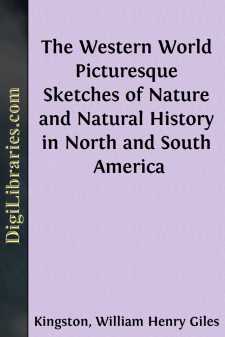Categories
- Antiques & Collectibles 13
- Architecture 36
- Art 48
- Bibles 22
- Biography & Autobiography 815
- Body, Mind & Spirit 144
- Business & Economics 28
- Children's Books 18
- Children's Fiction 14
- Computers 4
- Cooking 94
- Crafts & Hobbies 4
- Drama 346
- Education 58
- Family & Relationships 59
- Fiction 11835
- Games 19
- Gardening 17
- Health & Fitness 34
- History 1378
- House & Home 1
- Humor 147
- Juvenile Fiction 1873
- Juvenile Nonfiction 202
- Language Arts & Disciplines 89
- Law 16
- Literary Collections 686
- Literary Criticism 179
- Mathematics 13
- Medical 41
- Music 40
- Nature 180
- Non-Classifiable 1768
- Performing Arts 7
- Periodicals 1453
- Philosophy 65
- Photography 2
- Poetry 896
- Political Science 203
- Psychology 44
- Reference 154
- Religion 515
- Science 126
- Self-Help 85
- Social Science 83
- Sports & Recreation 34
- Study Aids 3
- Technology & Engineering 59
- Transportation 23
- Travel 463
- True Crime 29
William Henry Giles Kingston
William Henry Giles Kingston was a 19th-century English writer known for his adventure novels for boys. Born on February 28, 1814, in London, he authored numerous popular works, including "Peter the Whaler" and "The Three Midshipmen." Kingston's engaging stories often drew on maritime themes, reflecting his interest in sea adventures and exploration.
Author's Books:
Sort by:
The home of my childhood in South America—My father’s history—Sent to school in England—Life at school—Summoned back to America—Voyage with my uncle to Jamaica—Sail for Venezuela—Chased by a Spanish man-of-war—Cross the bar of the Magdalena River—Driven on shore by a storm—Boat nearly wrecked—Our night encampment—Repair boat—A deer shot—Disturbed by Goahira...
more...
Last day at home—Join the “Heroine” as a midshipman—Bound for the Pacific—Ordered to touch at Cape Coast Castle—On the look-out for a pirate—Chase her up a river—Our boat attacked—Dicky Popo brings us information—Fight with the pirates—A capture—A schooner blows up—Deliver up our prize to the Commodore—Proceed on our voyage. The last day of my home-life came to an end....
more...
The Family Party. “Harry, my boy; another slice of beef?” said Major Shafto, addressing his fine young sailor-son, a passed midshipman, lately come home from sea. “No, thank you, since I could not, if I took it, pay due respect to the mince-pies and plum-pudding; but Willy here can manage another slice, I daresay. He has a notion, that he will have to feed for the future on ‘salt junk’ and...
more...
Chapter One. âWhat! Ned Raymond ahoy! Heave to, lad. What! dost seek to give a wide berth to an old friend? That once was not your wont. Ned Raymond ahoy, I say!â The slight dark moustache on the lip of the person addressed showed that he had just reached the age of manhood. His raven hair hung in ringlets from his head. A black velvet cloak thrown over one shoulder, and a tightly-fitting...
more...
Early Days. Ours was a capital school, though it was not a public one. It was not far from London, so that a coach could carry us down there in little more than an hour from the White Horse Cellar, Piccadilly. On the top of the posts, at each side of the gates, were two eagles; fine large birds I thought them. They looked out on a green, fringed with tall elms, beyond which was our cricket-field. A...
more...
Chapter One. “How many more days, Jan, will it be before we get across this abominable desert?” I asked of our black guide, as we trudged along, he leading our sole remaining ox, while my uncle, Mr Roger Farley, and I led our two horses laden with the remnants of our property. “May be ten days, may be two ten,” answered Jan Jigger, whose knowledge of numerals was somewhat limited. I gave a...
more...
Chapter One. The Young Colonists Introduced—Expectant Relatives—In Search of “Old Bolter”—A Dinner in the Bush—Bolter tries to Escape—Encounter Blacks—Bolter brought back—Sandy Macdougal. “I wonder what sort of fellows these English cousins of ours will turn out?” exclaimed Harry Berrington, as he rode up alongside his elder brother Paul. “Judging by their photographs, which...
more...
My English Home and Family—My Brother goes to Sea—Hear of the Loss of his Ship—My Father’s Death—We are reduced to Poverty—Resolve to visit my Grandfather, and to search for Alfred—Kindness of my Schoolmaster and Companions—My dog Solon. Ours was a very united and a very happy family. We lived in the neighbourhood of London, near Blackheath, in Kent, on the elevated ground which...
more...
Chapter One. Arthur Gilpin and Mark Withers walked down the High Street, arm-in-arm, on their return to their respective homes from the well-managed school of Wallington. They were among the head boys, and were on the point of leaving it to enter on the work of active life, and make their way in the world. They had often of late discussed the important question—all-important, as it seemed to them—...
more...
Preface. In the following pages I have endeavoured to give, in a series of picturesque sketches, a general view of the natural history as well as of the physical appearance of North and South America. I have first described the features of the country; then its vegetation; and next the wild men and the brute creatures which inhabit it. However, I have not been bound by any strict rule in that respect,...
more...


